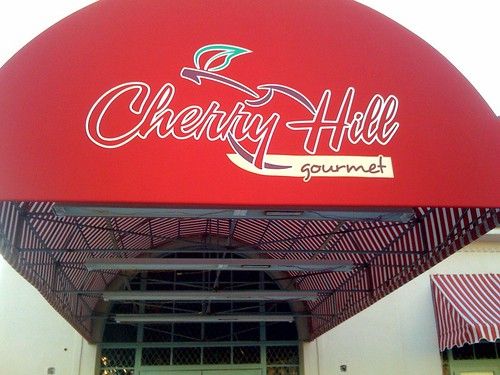Lundy’s Zoning Struggle Parallels War In Afghanistan, Says Cherry Hill Owner

We’ve long covered the struggles of Cherry Hill Gourmet Market and its owners, who dumped millions into renovating the space in the historically landmarked Lundy’s building (1901 Emmons Avenue) only to face opposition from local leaders about zoning and preservation violations.
To sum it up: some local leaders and activists bristled that Cherry Hill’s owners gave more floor space to its grocery store than its restaurant, in violation of the Sheepshead Bay Special Waterfront District that permits only waterfront and recreational use. Then, some of their renovations were called into question, including pulling Lundy’s historic metal signs and ripping out the sidewalk insignia (the signs were later cleaned and replaced; the insignia is preserved in storage). And, most recently, the operators went before the Landmarks Preservation Committee to settle fines, and agreed to make minor changes, including a barrier around mechanical units that violated the LPC rules. And we noted then that the owners still need to approach the City Planning committee and fight for a change in zoning to legalize its usage as a supermarket.
A costly nuisance to the business owner? Definitely. A tough fight? Surely. A bloody 11-year “nation-building” battle with a death toll in the thousands? Well, according to Cherry Hill’s business owner, that hits the mark.
Cherry Hill’s owner David Isaev told the Wall Street Journal that he’s a victim of overbearing regulation, which has halted his efforts to clean up an important piece of waterfront property.
Mr. Isaev, who lived in Israel for 12 years before coming to the U.S. 22 years ago, said he views himself as a much-maligned savior of a garbage-strewn building that was going to ruin.
He said he was blindsided by attacks on his business and was unaware of all the complicated landmarking and zoning requirements when he signed a lease.
“My feeling was, this is not America,” he said. “I served in a war in Lebanon, and this is worse. It is Afghanistan.”
The Journal’s report yesterday described the fight as the centerpiece of division between “old-timers” and newer residents of Eastern European descent. The former respects the past, the article suggests, while the latter is on a slash-and-burn mission to remake the neighborhood however they like.
That argument is bolstered by quotes from Community Board 15 Chairperson Theresa Scavo and Bay Improvement Group’s Steve Barrison, who both argue that Russians have no connection or interest in the neighborhood’s history. As a result, they run amok of city laws meant to preserve neighborhood character and history.
“The people who have settled here have no sense of history, they don’t know Lundy’s,” said Theresa Scavo, the chairwoman of the local community board grappling with the issue. “For them it is just a supermarket.”
… “I don’t care how much he invested or how long he has been there, that doesn’t excuse you from following the law,” said Mr. Barrison, whose family has lived in Sheepshead Bay for more than a century. “The Russian community has no roots or understanding of history here. So what does it matter to them what the law is?”
But that’s not the narrative we’re hearing on the ground. Sure, it’s only anecdotal, but our conversations with people across the neighborhood paint it more as a questioning of arguably anachronistic – though well-intentioned – regulations that are barring economic development and local commerce. And that’s an argument that crosses ethnic lines.
The Special Sheepshead Bay District was implemented in 1973 to “encourage development that will strengthen and protect the unique character of this waterfront community. In the area immediately north of the fishing fleet wharves, commercial uses are restricted to waterfront and tourist-related activities.”
But everyone agrees that a lot has changed in Sheepshead Bay since the 1970s, and the Lundy’s property in particular has spent the majority of the time since the district’s establishment as a dilapidated eyesore. Two attempts to run a traditional seafood restaurant have failed spectacularly. Elsewhere along Emmons, residential developments and retail establishments like Loehmann’s have set precedents that chewed up the special waterfront zoning. Meanwhile, bait and tackle shops and other waterfront-related businesses gave way to largely Eastern European and Turkish dining options that eschew nautical themes for more modern glitz. And the fishing fleet has thinned, while dinner cruise vessels have boomed.
Locals are not blind to these changes, and many who’ve lived in Sheepshead Bay for decades wonder if it’s time to move on from the perception of the neighborhood as a fishing village to one of a polyglot bastion of shopping and cuisine, bolstered, but not defined by, a beautiful marina.
And that’s what’s at the core of the Lundy’s debate: not a cultural narrative of “old-timers” who don’t want things to change versus Russians who don’t care for history; but that of those who wonder if a 40-year-old regulation should still hold sway over a community that’s changed so much, versus those who think no matter how much we change there are some things worth preserving.
Which camp do you fall into?




